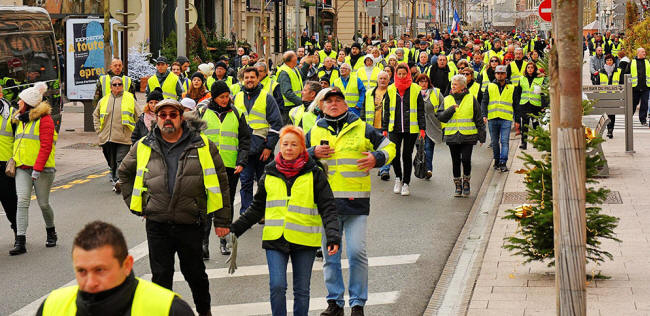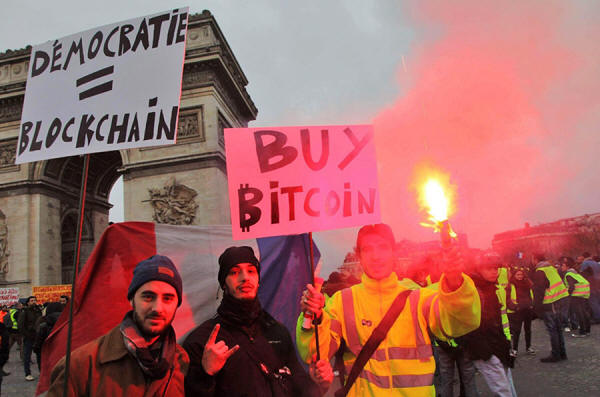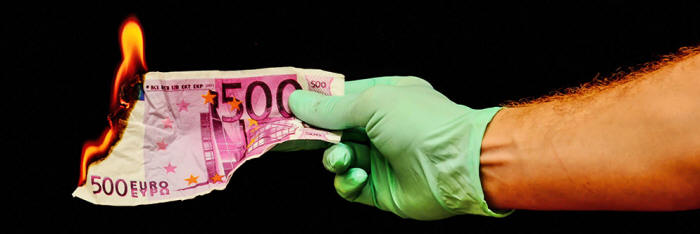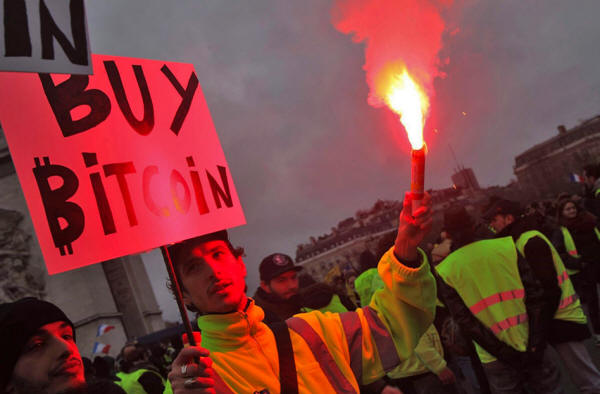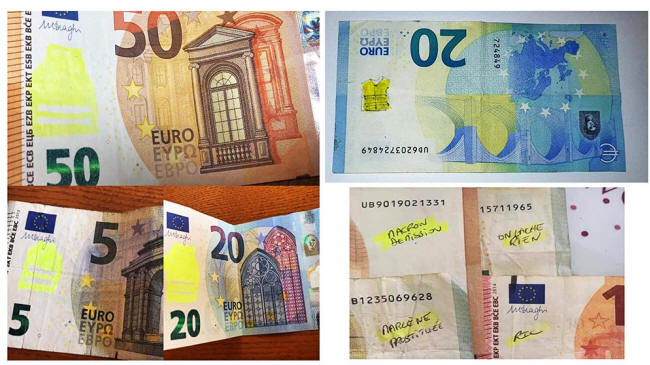|
by Bill Wirtz February 05, 2019 from Fee Website
"Anti-Troublemakers Bill" is an assault on the French
people's right to protest.
CC BY
4.0
Politics Yellow Vests Protest Free Speech Big Government Dissent France Macron Civil Liberties...
However, it wasn't Macron's own "La République En Marche" ("The Republic on the Move") party that came up with the new rules on protests, but rather, the Republican right (the centrist party of former French president Nicolas Sarkozy), which has taken the side of the police in the violent protests in Paris and other major French cities.
The French Senate - a body in which Republicans are still the most numerous - had suggested a bill in early January that already contained the most controversial aspect of the current law:
The decision will be purely in the hands of the unelected prefects
put in power by
the government...
Individuals identified in a specific police file will be unable to attend protests (for as long as a month), even if they have no previous convictions.
The decision will be
purely in the hands of the unelected prefects put in power by
the government. There is uncertainty for now as to whether such a
decision could even be appealed in court.
There you have it:
The Anti-Troublemakers Bill also bans protesters from wearing a helmet, mask, or a scarf in an attempt to stop violent protesters from getting away without consequences.
Anyone caught masked can be subject to a fine
of €15,000 ($17,100).
In action, this might mean that large security checkpoints could be introduced before a demonstration is allowed to begin and that police forces may intercept, detain, and search any protester at any moment in time.
France passed a fake news bill, allowing for the direct censorship of news sources deemed untrustworthy
during election
season...
Just over a year ago, France passed a fake news bill, allowing for the direct censorship of news sources deemed untrustworthy during election season.
Back then, Macron was still beset by the "MacronLeaks" affair that had broken just before the presidential election.
The French election commission, which is supposed to be impartial, strongly urged media outlets not to cover the leaks and went even further by asking them to,
One centrist member of the National Assembly, Charles de Courson, who is not a part of Macron's ruling party, summarized the issue very accurately:
Indeed, this particular text is a wonderful exercise for the game "What if X had done it?"
Had this law been passed under a far-right government with the same arguments in mind (and given its policies, probably also the same violent protests as an instigating factor), there would be international outrage, and perhaps even an internal investigation conducted by the European Union.
But since Macron is a pro-big government, pro-EU "centrist," 'we're all good'. The comment of Charles de Courson should resonate with those favoring small government for more than just practical reasons.
The question isn't,
...because on the day
Marine Le Pen or anyone else from her party takes over, some
people will get a really scary wake-up call... ...Starts a New Form of Protest: Burning Banknotes
by Jamie Redman from BitCoin Website
On Feb. 1, a group of
Gilets Jaunes working at the bill printing factory explained
their plan to show the world they mean business by burning pallets
of bills, starting with Israeli banknotes.
Yellow Vests Burn
Stock of Foreign Bills
For instance, on Tuesday, Feb. 5, about 18,000 Gilets Jaunes joined a march in the French capital walking side by side with another 12,000 CGT union workers.
The protest also followed a demonstration on Friday, which showed employees claiming to work for the Banque de France banknote mill. The yellow vest associated group threatened to burn large sums of paper banknotes.
A News.Bitcoin
correspondent from France explained how the bill burners are
demanding fiscal and social justice in a unique fashion.
The bill factory employees state:
At the same time, the world economy has been shuddering once again and economists are predicting another global depression similar to 2008.
Many regions like,
...are suffering from economic hardships.
"If every French person converted 20% of their bank deposits into bitcoin, French banks would collapse and a lot of bloodshed could be avoided," said Max Keiser on Dec. 9, 2018.
Many have written about this dream and believe that cryptocurrencies like bitcoin will experience mass attention from a majority of citizens living in impoverished countries.
The cofounder of the Satoshi Nakamoto Institute, Daniel Krawisz, once said:
Krawisz's 2014 essay details how a country dealing with hyperbitcoinization will experience a voluntary transition from an inferior currency to a superior one.
The country's adoption represents a,
Krawisz's post continues by saying:
by the
yellow vest movement.
A Loss of Confidence
in the System Has Given Birth to Many Movements
Global citizens are upset with their leaders and losing confidence in the central bank's paper bills which are printed by the trillions every year. People from all countries and continents are upset with the system and believe something has got to give.
Our correspondent from France told News.Bitcoin that most individuals don't wear yellow vests these days because if you take the train,
Not only are the
protestors in France threatening to burn large stacks of bills, but
they are also now printing special images of yellow vests on
banknotes.
|


